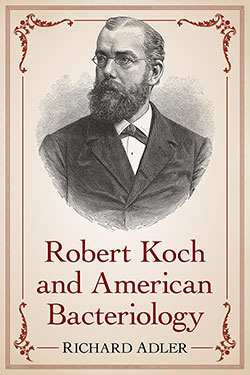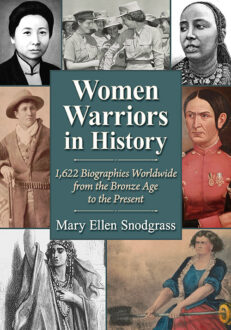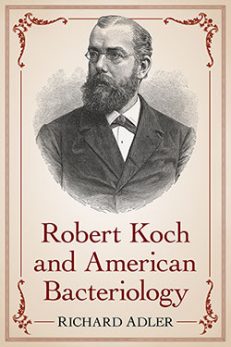Robert Koch and American Bacteriology
$39.95
In stock
About the Book
In bacteriology’s Golden Age (roughly 1870–1890) European physicians focused on bacteria as causal agents of disease. Advances in microscopy and laboratory methodology—including the ability to isolate and identify micro-organisms—played critical roles. Robert Koch, the most well known of the European researchers for his identification of the etiological agents of anthrax, tuberculosis and cholera, established in Germany the first teaching laboratory for training physicians in the new methods.
Bacteriology was largely absent in early U.S. medical schools. Dozens of American physicians-in-training enrolled in Koch’s course in Germany, and many established bacteriology courses upon their return. This book highlights those who became acknowledged leaders in the field and whose work remains influential.
About the Author(s)
Bibliographic Details
Richard Adler
Format: softcover (6 x 9)
Pages: 252
Bibliographic Info: 33 photos, notes, bibliography, index
Copyright Date: 2016
pISBN: 978-1-4766-6259-6
eISBN: 978-1-4766-2705-2
Imprint: McFarland
Table of Contents
Table of Contents
Preface 1
Introduction 5
1. Robert Koch: His Life and Role in Bacteriological Research 13
2. Germ Theory of Disease: Origins of Bacteriology 32
3. Bacteriology in 19th Century United States 53
4. The Cartwright Lecture: Belfield vs. Formad 70
5. Training with Koch 91
6. Theophil Mitchell Prudden 105
7. William Henry Welch 126
8. Edward Oram Shakespeare 152
9. Harold Clarence Ernst 168
10. Victor Vaughan and Frederick Novy 174
11. Lydia Rabinowitsch-Kempner 199
12. American Bacteriology After Koch 214
Chapter Notes 221
Bibliography 236
Index 241
Book Reviews & Awards
“this fascinating account of a pivotal era in scientific history demonstrates the powerful influence Koch and his students had on all aspects of medicine in the United States…a highly readable and valuable contribution to the history of American bacteriology. Recommended”—Choice.





